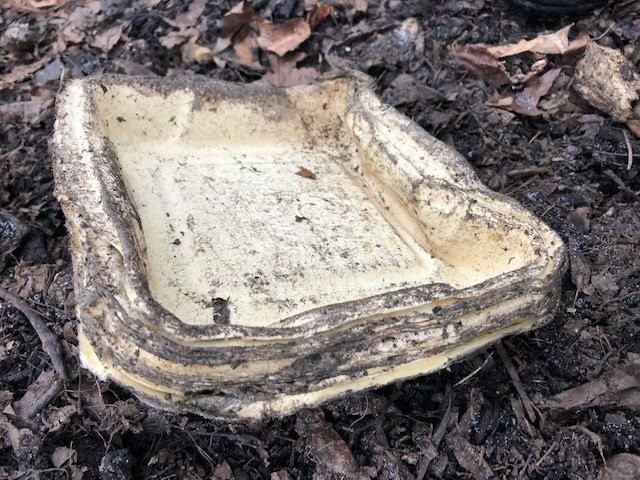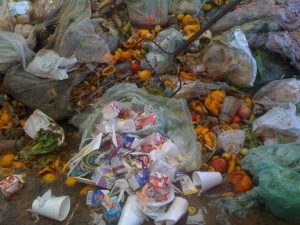CLOSURE ALERT: All facilities are CLOSED on Thursday, Jan. 1 for New Years Day.
Why We Will No Longer Accept Compostable Foodware

As Vermont’s largest commercial compost facility, CSWD’s Organics Diversion Facility transforms more than 5,000 tons of food scraps from our community into high quality Green Mountain Compost brand compost and topsoil every year. By turning food into soil amendments, we’re returning nutrients to local gardens, farm fields, yards, and landscaping. We’re helping gardeners and farmers conserve water and reduce the use of synthetic fertilizers, pesticides, and herbicides.
The continued success of this program hinges on our ability to sell this beautiful, high-quality compost and other soil amendments. That’s why we’ve reached the difficult decision to stop accepting compostable foodware of any kind as of January 1, 2022.
Materials accepted effective January 1, 2022
- All food scraps of any kind
- Certified, clearly labeled compostable bags used for lining food scrap containers (has a BPI symbol clearly displayed on the bag – biodegradable does NOT mean compostable)
- Coffee filters & tea bags (paper only–no plastic tea bags)
- Newspaper and untreated paper bags used to line food scrap containers
- Paper towels and napkins – only if they DO NOT contain body fluids or chemicals of any kind
- Wooden or bamboo stirrers, toothpicks (no plastic frills), chopsticks
This applies to materials brought to any CSWD Drop-Off Center as well as anything brought to CSWD’s Organics Diversion Facility for composting by a private hauling company.*
Nearly all commercial composters in Vermont, and the majority across the U.S., do not accept compostable foodware and other products.
Some who do accept them screen them out and send them to the landfill. That doesn’t fit our commitment to transparency.
These products pose many problems for our operations
- They invite “look-alike” cups, utensils, plates and other foodware that is made from plastic and other non-compostable materials that contaminate our products. We can’t tell the difference when they all come in together.
- Even certified, legitimately “compostable” products do not always break down adequately in our operation.
- Some paper and fiber foodware contains PFAS, a class of chemicals used for moisture and grease resistance. PFAS has been linked to numerous negative health risks and does not “disappear” from the environment.

We have invited our District’s businesses, institutions, and event organizers to engage with us in finding solutions to our collective dependence on single-use products of all kinds. There’s no easy answer, but we know we will surmount obstacles faster when we work together.
We invite you to send your questions and concerns about this decision and your suggestions for ways we can support alternatives to single-use products.
*If your food scraps are picked up at your home or business by a hauling service, check with that company to find out where your scraps are going and what you can include.
